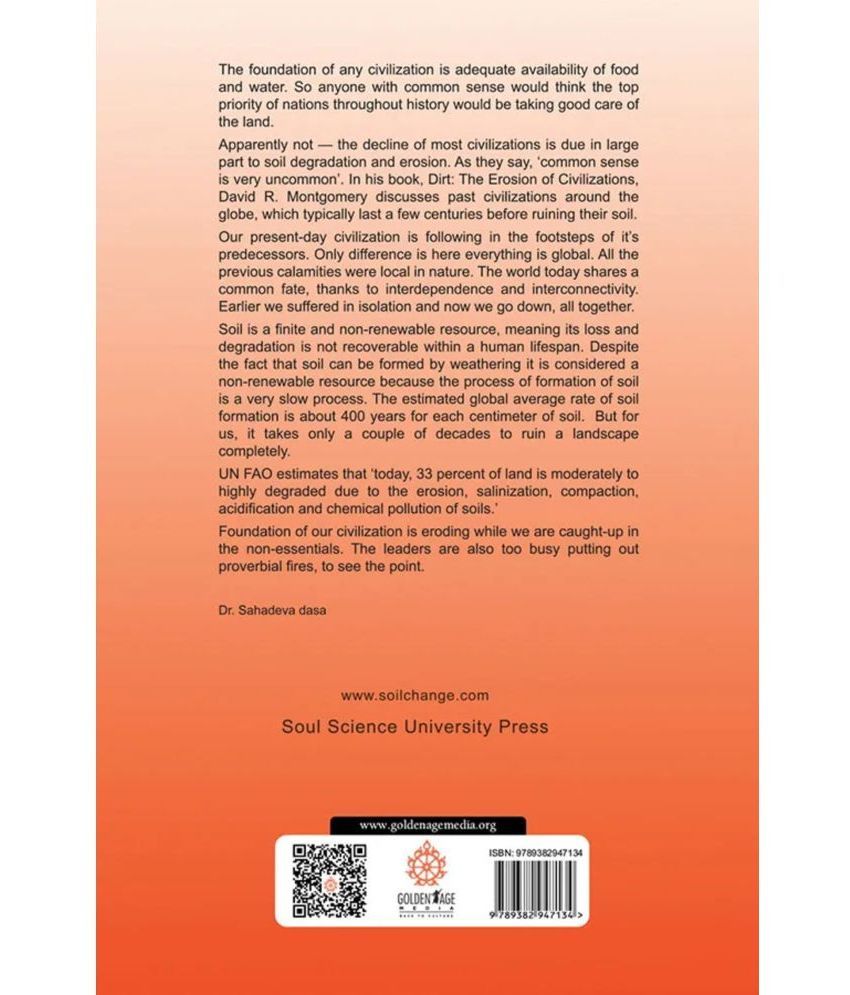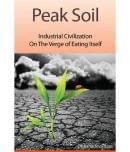Peak Soil: The foundation of any civilization is the adequate availability of food and water. So anyone with common sense would think the top priority of nations throughout history would be taking good care of the land.
Apparently not—tthe decline of most civilizations is due in large part to soil degradation and erosion. Common sense is very uncommon. In his book, Dirt: The Erosion of Civilizations, David R. Montgomery discusses past civilizations around the globe, which typically last a few centuries before ruining their soil.
Our present-day civilization is following in the footsteps of it’s predecessors. Only difference is here everything is global. All the previous calamities were local in nature. The world today shares a common fate, thanks to interdependence and interconnectivity. Earlier we suffered in solitude, and now we go down, all together.
Soil is a finite and non-renewable resource, meaning its loss and degradation is not recoverable within a human lifespan. Despite the fact that soil can be formed by weathering it is considered a non-renewable resource because the process of formation of soil is a very slow process. The estimated global average rate of soil formation is about 400 years for each centimeter of soil. But for us, it takes only a couple of decades to ruin a landscape completely.
UN FAO estimates that ‘today, 33 percent of land is moderately to highly degraded due to the erosion, salinization, compaction, acidification and chemical pollution of soils.’Foundation of our civilization is eroding while we are caught-up in the non-essentials. The leaders are also too busy putting out proverbial fires, to see the point.


